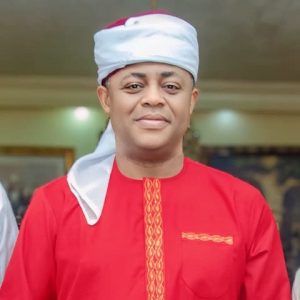An alleged child abuser died before his trial. His accusers are now being blamed

Kampala, Uganda — When she heard the news of her abuser’s death, Hope said that she felt like her heart had stopped beating for a few seconds. “I didn’t know how to respond. I was broken, I shivered. I didn’t know whether to believe it or not, to cry or not,” she wrote to CNN.Hope is one of the young women and girls who for the past year have been traveling to Ugandan courts ready to testify against German national Bernhard “Bery” Glaser, who is alleged to have sexually abused vulnerable girls like her, who were living in his care.”I credit him for the good deeds he did but no one is perfect, there is also a dark side of him and that’s what people have failed to understand,” said Hope, whose name has been changed to protect her identity.Glaser died in early May at Murchison Bay Hospital, a facility treating inmates of Luzira Prison in Kampala, Uganda. The day before his death, he had been granted bail, including international leave for medical treatment for stage four skin cancer.He had been detained since last February, when he turned himself in, and charged with 19 counts of human trafficking, then formally charged and arrested in April with 19 counts of human trafficking, seven counts of aggravated defilement, one count of indecent assault and one count of operating an unauthorized children’s home, known as ‘Bery’s Place.’ He was first arrested in 2013, but the case was dismissed when survivors and their parents did not appear in court to testify.”Obviously, Bery’s condition was serious and we feel for his family during this time. But, we also feel saddened for the victims in this case, and there are many,” said Rachel W. Bikhole, Uganda’s Assistant Director of Public Prosecutions, who described the evidence against the accused as “overwhelming.”Bikhole told CNN that when a search of ‘Bery’s Place’ was carried out in February 2019, Glaser’s laptop was recovered and subjected to examination, during which naked videos and photos of the victims — some as young as five years old — were found on it. When questioned, Bikhole said Glaser claimed the material was used for fundraising purposes.
“These girls and young women will not see the day that Bery was held accountable for his crimes.”
Rachel W. Bikhole, Uganda’s Assistant Director of Public Prosecutions
Investigators also found email and Facebook messages on Glaser’s computer from him to a key witness in the 2013 case offering her money not to testify, according to Bikhole. CNN has reached out to his lawyer for response. “These girls and young women will not see the day that Bery was held accountable for his crimes,” added Bikhole. “They will not get to tell of the terrible sexual abuse they endured for so many years and the lasting impact it has had and will have on them for the rest of their lives.”Lawyers supporting the prosecution and a police source told CNN earlier this year that Glaser’s trial was postponed due to delaying tactics by the defense such as applying for a plea bargain deal and requesting a Flemish interpreter despite his demonstrated English proficiency. As a result, he did not make a plea before his death. Glaser’s lawyers have denied attempting to delay proceedings. In a February statement sent by WhatsApp to CNN, a lawyer representing Glaser denied that he had committed the alleged crimes.Patricia, another survivor whose name has also been changed, told CNN that she had “never missed a court session,” traveling to testify in Kampala and Masaka eight times — only to be told again and again that the case would again be adjourned. “We ended up performing poorly due to the trauma and endless journeys to court, resulting in us missing out on exams,” said Patricia, 20, who says she was abused from the age of 11 and is now at university.Hope described the past year as a “very difficult year of abuse and accusations.” After speaking out about their experiences, survivors like Hope and Patricia have been victim-blamed and had their testimonies called into question, including in some Ugandan media reports and social media.Before they had time to process the news of Glaser’s death, Hope said she and other witnesses started to receive calls and messages with threats and curses, labeling them “murderers.”As reported in a CNN investigation into the case in February, Asia Namusoke Mbajja — a social worker with connections to Bery’s Place who eventually reported Glaser — has opened a police case of offensive communication and threatening violence following similar interactions.The case is ongoing, with five phone numbers used to threaten to “injure or harm” Mbajja under investigation — including one registered in the name of Glaser’s wife, Ingrid Dilen, according to a preliminary police report see by CNN. Dilen told CNN she has not threatened anyone.Mbajja too has received a fresh barrage of threats following Glaser’s death, and government prosecutor Bikhole also told CNN she has been “attacked a lot” and received threats on social media.”I want to hide, I want to run, run far away so that no one will ever find me,” wrote Hope. “But is this the right thing? I’m just a witness,” she said, adding that even “a simple thing from him just to say sorry to us” would have meant so much. Hope also told CNN that she is struggling to support the other survivors, many younger than her, who she is currently living with at a shelter. “I can’t lend them a shoulder to cry because I also need one to cry on,” she wrote.”We will continue to find ways to help these victims,” said Bikhole. “And we will continue to fight against trafficking in persons in Uganda as there are still many cases and victims that require our attention.” Click here for more stories from the As Equals series.







